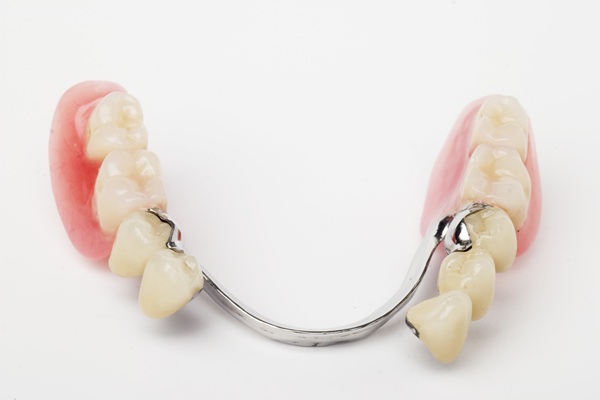Can I Get Dental Implants If I Have Gum Disease?

Want dental implants to replace your missing teeth but are not sure if you are indeed a candidate? One of the criteria for having one or more implants placed in your mouth is being free of any gum disease. There are four levels of gum disease, and if you are diagnosed with any, then you will need to undergo gum disease treatment before being approved to undergo the implant placement process.
About dental implants
Want detailed information about dental implants so you can decide whether this replacement option is right for you? This is a smart idea. Implants are popular because they closely resemble natural teeth. An implant is surgically inserted into the jawbone, allowing it to act like a natural tooth’s root. An implant is custom-designed for every patient, allowing it to blend in with the rest of the teeth. Implants allow for easier oral care, easier speaking, easier eating and overall comfort, which is why implants are a popular tooth replacement option.
About gum disease
Gum disease is caused when plaque is not removed from the teeth in a timely manner. When plaque is allowed to build up, it begins to negatively affect the gums and teeth and even the jawbone. When not addressed in its beginning stages, gum disease will only worsen. It will eventually cause pockets to develop in between the gums and teeth, which will begin to fill up with bacteria. This bacteria is not only harmful to the mouth, but it can also be harmful to the entire body.
Can patients get dental implants if gum disease is present?
No. If gum disease is present, dental patients will first need to have the disease treated before they can have implants placed in their mouths. The dental implant placement process requires a dental professional to surgically insert an implant directly into a patient's jawbone. This allows the implant to look just like a natural tooth, which is exactly what patients want. But if gum disease is present, the chances of successful implant placement are reduced.
Gum disease does not support a healthy mouth. When gum disease is present, it will eventually lead to various levels of gum recession, as well as various degrees of bone loss. Patients who are currently experiencing these problems are much less likely to experience success for implant placement, as the implant will simply not be supported by diseased gums and an inadequate amount of jawbone.
Ready to address your missing teeth problem?
Are dental implants your chosen tooth replacement option? If you have determined that implants are the right choice for you, then today is the day to get started on the process! One of the first steps is making sure that your mouth is free of gum disease. If you are diagnosed with gum disease, then you will need to undergo treatment in order to remove the disease, to make your mouth healthy enough to start inserting the implants.
Are you considering dental implants in the Milwaukee area? Get more information at https://www.esdmke.com.
Check out what others are saying about our services on Yelp: Read our Yelp reviews.
Related Posts
Many children experience dental anxiety before a dental checkup. However, the good news is that there are certain things parents can do to help children deal with their nerves before a visit with a kid friendly dentist. By taking the time to help your child deal with their anxiety at a young age, it can…
There are many benefits to removable partial dentures instead of alternative treatment solutions (i.e., implant-supported bridges). Understanding the advantages of partial dentures can help you make the most informed choice possible about the best way to replace your missing teeth.Removable partial dentures are a form of teeth replacement for a section of missing teeth. They…
Understanding the key differences between a dentist and an orthodontist can help patients determine which specialist they need for their oral health care. While both professionals focus on maintaining and improving oral health, their roles, training, and areas of expertise differ significantly. A dentist typically handles general dental care, while an orthodontist specializes in diagnosing…
Dental crowns are a reliable and durable solution for restoring the appearance and function of damaged teeth. While dental crowns are designed to last years, proper care and maintenance are essential for extending their lifespan. Following practical steps and working closely with your dentist can protect your investment and enjoy a confident smile for years.Maintaining…


